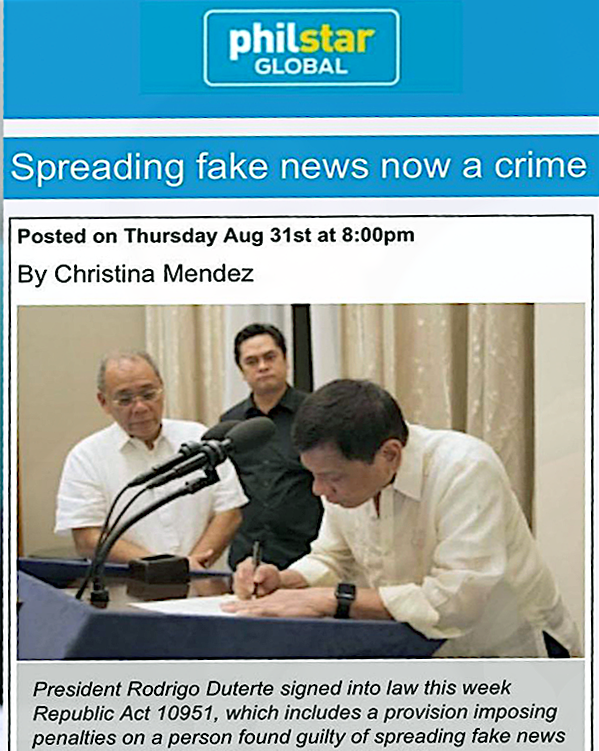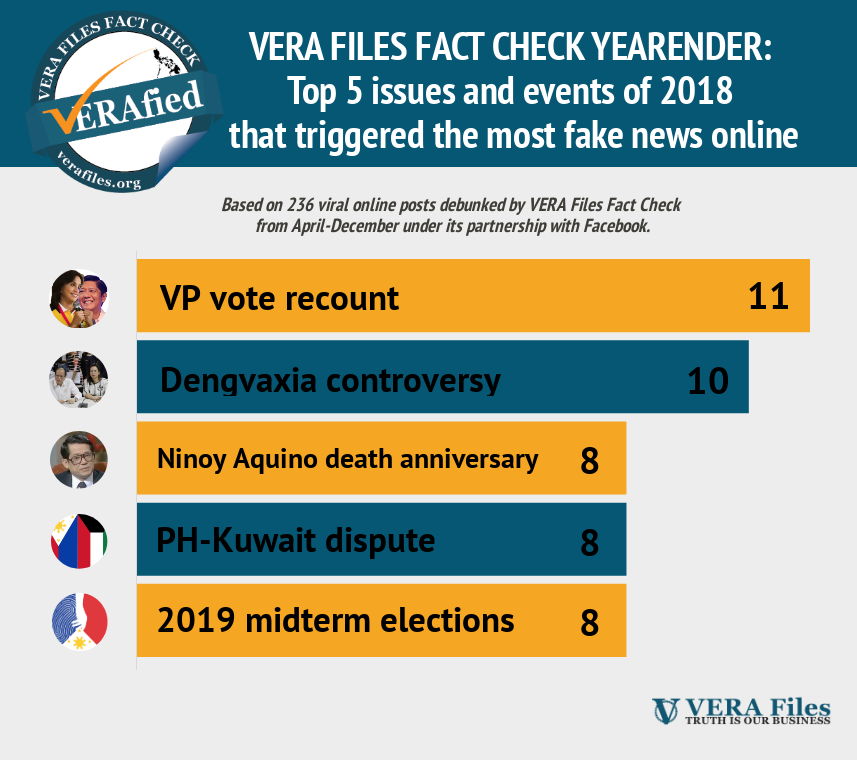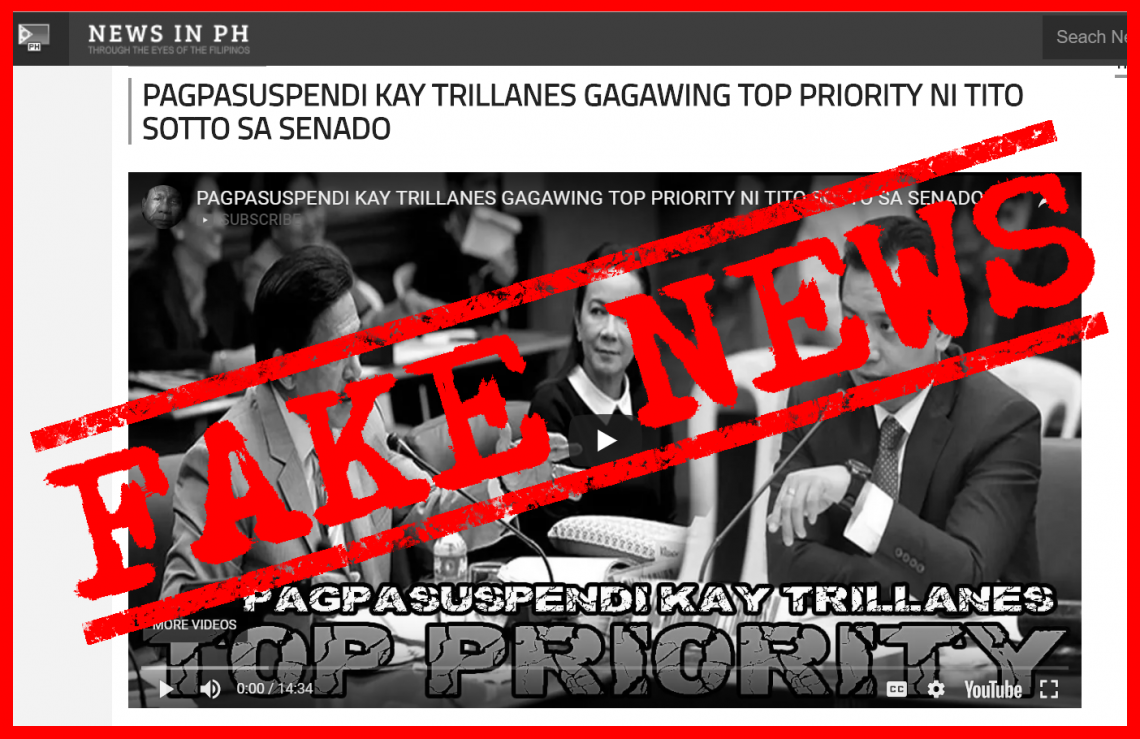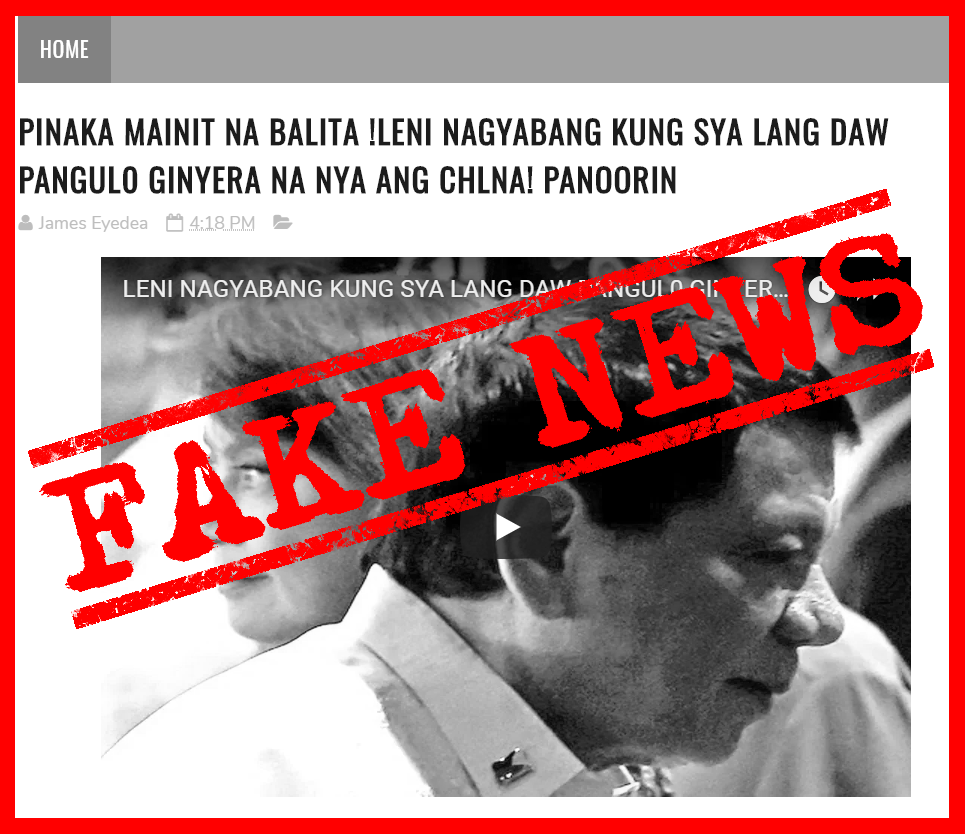
A screenshot of the report “Spreading fake news now a crime,” published by Philstar.com
(UPDATED) Social media erupted early Friday morning when Philstar.com ran a Philippine Star report that President Rodrigo Duterte signed on Aug. 29 a new law criminalizing fake news.
STATEMENT
The Sept. 1 online story ran the headline, “Spreading fake news now a crime.”
It reads:
“President Duterte signed into law this week Republic Act 10951, which includes a provision imposing penalties on a person found guilty of spreading fake news that might affect public order.
Amid the prevalence of false news in the country and elsewhere, Duterte signed the law that amended the 87-year-old Revised Penal Code and also placed penalties on unlawful use of publication and unlawful utterances.”
(Source: Philstar.com, Spreading fake news now a crime, Sept. 1, 2017)
The story has since drawn over 24,000 likes on Facebook, and 4,680 shares.
FACT
The law punishing false news already exists, as stated in the Revised Penal Code (RPC), which was passed in 1930.
Sen. Franklin Drilon, the author of Republic Act No. 10951, in his sponsorship speech in January said the new law merely amends the code to restore the “proportionality of crime and punishment,” by updating outdated penalties to match their 2017 monetary equivalents.
“We can categorically state that the increase in fines had nothing to do with the rise of fake news,” Drilon told VERA Files.
Philstar attributed the fake news angle to Article 154 of the Code, which sanctions the “unlawful use of means of publication and unlawful utterances.”
The same Article states, “Any person who by means of printing lithography, or any other means of publication shall publish or cause to be published as news any false news which may endanger the public order, or cause damage to the interest or credit of the State.”
However, Drilon said “the amended provisions were not cherry-picked,” as the law tackles all 99 crimes that have monetary penalties in the RPC, including Article 154.
In adjusting the amounts, the law adopted the Department of Justice’s formula: Dividing any of “the value of property or damage, amount involved in the crime, or fine” by the minimum wage of P2.50 in 1930, and multiplying by P500, the current highest minimum wage rate.
This means the penalty for Article 154, which ranged from P200 to 1000 in 1930, is now pegged at P40,000 to P200,000, in addition to serving a jail term of up to six months.
Lawyer Marlon Anthony Tonson of the Philippine Internet Freedom Alliance said the new law refers only to the adjustment of fines and not the creation of a brand new felony, in this case, fake news.
“Defining a new crime under the (RPC) can only be done in a separate piece of legislation made specifically for that purpose,” Tonson told VERA Files in a text message.
BACKSTORY
A separate anti-fake news bill is pending with the Senate Committee on Public Information and Mass Media.
Sen. Joel Villanueva authored Senate Bill No. 1492, which seeks to penalize persons and platforms that publish or circulate false news in print, broadcast and online, with twice the fine for public officials.
Particularly, the bill targets false news that intend to “cause panic, division, chaos, violence and hate, and black propaganda.”
(Guided by the code of principles of the International Fact-Checking Network at Poynter, VERA Files tracks the false claims, flip-flops, misleading statements of public officials and figures, and debunks them with factual evidence. Find out more about this initiative.)
Sources:
Cruz, R. C. (2002). The Revised Penal Code with Related Laws, Fourth Edition. Quezon City: UP Law Complex.
Sponsorship speech of Sen. Franklin Drilon, Jan. 31, 2017
EDITOR’S NOTE: The article “Spreading fake news now a crime” first appeared in The Philippine Star. Philstar.com, the broadsheet’s online platform which operates as separate company, subsequently carried the article.




